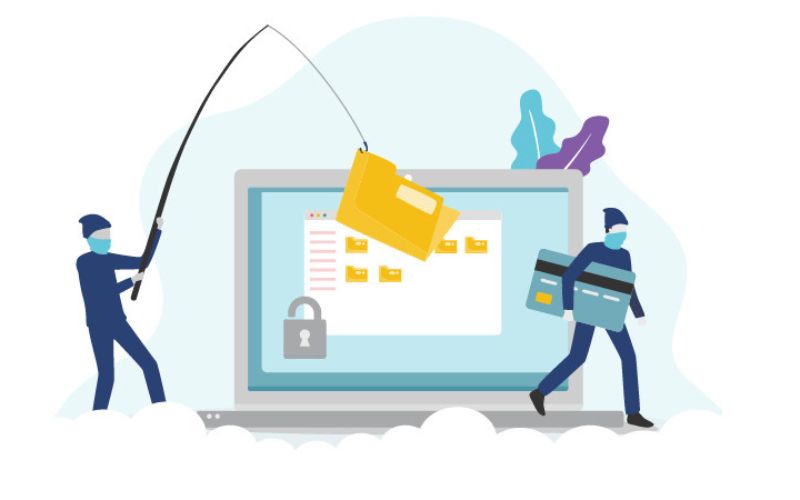In our increasingly digital world, our data is constantly collected, stored, and shared. While this data can be used to solve data privacy problems and provide personalized services and experiences, it also raises significant concerns about data privacy. Data security, which protects personal data from unauthorized access, use, or disclosure, is becoming increasingly important. But what exactly are the problems with data privacy that we should be aware of? Keep reading to find out!
What is data privacy?
Data privacy protects personal information or data from unauthorized access, use, disclosure, alteration, or destruction. It encompasses various principles, practices, and regulations to safeguard individuals’ privacy rights concerning their data.
At its core, data privacy involves ensuring that individuals have control over their personal information, including how it’s collected, processed, stored, and shared by organizations. This control allows individuals to make informed decisions about their data use and trust that their privacy rights will be respected.
Critical aspects of data privacy include:
- Consent: Individuals should have the right to consent to collecting and using their data and be informed about how it will be used.
- Purpose limitation: Organizations should only collect personal data for specified, explicit, and legitimate purposes and not use it for other purposes without obtaining additional consent.
- Data minimization: Collecting only the minimum personal data necessary to fulfill the specified purposes helps reduce the risk of unauthorized access or misuse.
- Security: Implementing appropriate technical and organizational measures to protect personal data against unauthorized access, disclosure, or destruction, including encryption, access controls, and regular security assessments.
- Transparency: Providing clear and understandable information to individuals about how their data is processed, including who has access to it and for what purposes.
- Accountability: Taking responsibility for compliance with data protection laws and regulations, including establishing internal policies, procedures, and mechanisms for handling personal data responsibly.
Data privacy is essential for maintaining individuals’ trust in organizations that collect and process their data, fostering responsible data stewardship, and upholding fundamental human rights to privacy and autonomy. As data becomes increasingly central to modern life and business, ensuring robust data privacy protections is critical for individuals and society.

Problems with data privacy
Personal data is constantly collected, used, and sometimes misused in our increasingly digital world. Here are the significant problems with data privacy:
Security vulnerabilities
Security vulnerabilities in digital systems pose a significant threat to personal data protection. These vulnerabilities can arise from various sources, including flaws in system design, software bugs, and inadequate security protocols, making them susceptible to cyber-attacks. When attackers exploit these weaknesses, they can gain unauthorized access to vast amounts of sensitive data, leading to breaches with far-reaching consequences.
Beyond external threats, human error plays a critical role in data security. Simple mistakes, such as misconfigured databases or the mishandling of sensitive information, can inadvertently expose personal data to unauthorized parties. These incidents underscore the importance of robust security measures and vigilant data management practices to safeguard personal information against external and internal threats.
Privacy violation
Violating privacy through the unauthorized collection and use of personal data is a growing concern in the digital age. Many companies harvest personal information without explicit consent from individuals, often burying permissions in lengthy terms of service agreements that users need to understand or read thoroughly. This data is then used for various purposes, including targeted advertising and profiling, and sometimes sold to third parties, all without the explicit knowledge or approval of the individuals concerned.
Such practices erode trust between consumers and companies and challenge the ethical foundations of data collection and usage. They highlight the need for stricter regulations and more transparent practices to ensure individuals’ privacy is respected and protected.
Data abuse
Data abuse represents a malicious use of personal information, where data is exploited to discriminate, manipulate, or harm individuals. This can manifest in various forms, from targeted advertising based on sensitive information to more insidious uses like price discrimination or social engineering attacks.
Furthermore, personal data can be weaponized for illegal purposes, such as identity theft, financial fraud, or even stalking. The ramifications of data abuse are profound, affecting individuals’ mental health, economic stability, and personal safety. It underscores the urgent need for comprehensive data protection laws and ethical standards to prevent the misuse of personal information and protect individuals from harm.

Monitoring
Governments and corporations’ monitoring of individuals through collecting and analyzing personal data has escalated into a significant privacy concern. This surveillance can range from tracking online activities and communications to more sophisticated methods like facial recognition technology. While often justified under the guise of national security or improving customer experience, such monitoring practices raise critical questions about the balance between security and privacy.
They risk creating a society where individuals’ every move is tracked, analyzed, and potentially judged, leading to a chilling effect on free expression and a sense of constant surveillance. Addressing these concerns requires reevaluating surveillance practices, emphasizing transparency and accountability, and protecting individual privacy rights.
Lack of control
Despite various privacy settings and data protection regulations, once personal data is shared or collected, it becomes challenging for individuals to track, manage, or delete it. This situation is exacerbated by the complex ecosystem of data brokers, advertisers, and third parties who can obtain and share personal data without the individual’s consent.
The difficulty in removing personal data from the internet infringes on privacy rights and raises concerns about autonomy and the long-term implications of digital footprints. Empowering individuals with more control over their data through tools and regulations that support easy management and deletion of personal information is crucial for enhancing privacy in the digital realm.
Not budgeting for proper privacy compliance
Ignoring or underestimating the financial resources needed for privacy compliance can lead to non-compliance fines, lawsuits, and damage to reputation. Organizations should allocate adequate resources for implementing and maintaining robust privacy measures.
Not having collaborative relationships between business and privacy professionals
Privacy is not just a concern for the legal or compliance department; it should be integrated into the fabric of the entire organization. Collaboration between business and privacy professionals ensures that privacy considerations are embedded into decision-making processes, product development, and everyday operations.
Not having visibility over personal data collection, use, and sharing
Lack of transparency regarding personal data handling can erode trust with customers and regulatory bodies. Organizations should maintain clear records of the personal data they collect, how it’s used, and with whom it’s shared while providing this information to individuals.
Not correctly controlling access to personal data
Unauthorized access can lead to breaches and privacy rights violations. Implementing proper access controls, such as role-based access and encryption, helps prevent unauthorized access and ensures that only those with a legitimate need can access personal data.

Not keeping up with the rapid evolution of technology
Technology and the methods and tools malicious actors use to exploit vulnerabilities evolve rapidly. Organizations must stay updated on the latest developments in technology and security practices to safeguard personal data against emerging threats effectively.
Addressing these issues requires a proactive approach to privacy management, including ongoing education, investment in technology and expertise, and a culture prioritizing privacy as a fundamental aspect of business operations.
Risks of sharing personal data
In today’s digital age, sharing personal data is almost unavoidable. But while it fuels convenience and personalization, it also comes with many risks.

Security breaches
Imagine a treasure trove of your details – name, address, financial information – all readily available. Unfortunately, cyberattacks and human error can expose this data. Hackers exploit weaknesses in systems to steal information, while accidental leaks can occur due to human mistakes.
Privacy invasions
Do companies know too much about you? Companies often collect more data than necessary and might use it for unforeseen purposes, sometimes without your knowledge or consent. This raises concerns about privacy and control over your personal information.
Data misuse
Personal data in the wrong hands can be a recipe for trouble. It could be used for discrimination, targeted advertising manipulation, or identity theft. Imagine being denied loans or targeted with manipulative ads based on your online activity. Data breaches leave you vulnerable to these risks and more.
Constant surveillance
The digital world can feel like a giant watchful eye. Governments and companies often track your online activity, raising concerns about constant monitoring. This can have a chilling effect on free speech and movement, as people may hesitate to express themselves freely for fear of being tracked.
Limited control
Our digital footprint keeps expanding, but controlling it can be a challenge. Many platforms need help understanding what data they collect, and it is even more challenging to remove it from the internet altogether. This lack of control can be frustrating and leave you powerless over your information.
Resolution to problems with data privacy
While the digital world offers undeniable convenience, it exposes our data to various risks. This section explores potential solutions to data security problems, empowering to take back control of your privacy.
Rising data security awareness
Raising awareness about data security is crucial in the digital age. Training employees on data security awareness is critical to protecting company assets. A successful program involves identifying relevant topics, creating engaging material, and scheduling regular training sessions. Topics should include:
- Secure email and internet use.
- Recognizing threats like phishing and malware.
- Secure password practices.
Enhancing Data Security Legislation
Strengthening data security laws helps protect individuals and organizations from cyber threats. Laws and regulations like the General Data Protection Regulation (GDPR) and the California Consumer Privacy Act (CCPA) set standards for data protection. They enforce compliance through hefty fines and promote ethical data practices. New laws continue to emerge, reflecting the evolving landscape of data security and the need for robust legal frameworks.
Utilizing state-of-the-art data security technologies
Advanced technologies are defining the future of cybersecurity. Tools such as encryption, data masking, and redaction protect sensitive information. AI and machine learning enhance threat detection and response, making cybersecurity more efficient and effective. As digital environments grow more complex, these technologies play a critical role in safeguarding data across various platforms.
Enable users to take charge of their data.
Empowering users to control their data is essential for privacy. Platforms like Ancile allow users to set restrictions on their data, deciding what to release and to whom. This user-centric approach to data privacy helps individuals protect their information and maintain autonomy over their digital identities.

Best practices to safeguard data privacy
Safeguarding data privacy involves implementing a comprehensive set of best practices to protect personal information from unauthorized access, use, or disclosure. Here are some essential practices organizations can adopt:
- Data minimization: Collect and retain only the minimum personal data necessary to achieve specific purposes. Avoid collecting unnecessary or excessive information.
- Consent management: Obtain explicit consent from individuals before collecting, processing, or sharing their data. Ensure consent is freely given, informed, and specific to the intended purposes.
- Transparent data practices: Be transparent about how personal data is collected, processed, stored, and shared. Provide clear and easily accessible privacy notices that explain the purposes of data processing and any third parties involved.
- Security measures: Implement robust technical and organizational security measures to protect personal data from unauthorized access, disclosure, alteration, or destruction. This may include encryption, access controls, regular security assessments, and employee training on security protocols.
- Access controls: Restrict access to personal data to authorized personnel only. Use role-based access controls and least privilege principles to limit access to data based on job roles and responsibilities.
- Data encryption: Encrypt sensitive personal data both in transit and at rest to prevent unauthorized access in case of data breaches or unauthorized access.
- Data breach response plan: Develop and implement a comprehensive data breach response plan to detect, respond to, and mitigate the impact of data breaches promptly. This plan should include procedures for notifying affected individuals, regulatory authorities, and other stakeholders as law requires.
- Regular audits and assessments: Conduct regular audits and assessments of data privacy practices to identify and address vulnerabilities, compliance gaps, and areas for improvement.
- Employee training and awareness: Provide comprehensive training and awareness programs on data privacy best practices, security protocols, and regulatory requirements. Ensure that employees understand their roles and responsibilities in protecting personal data.
- Privacy by design and default: Integrate data privacy considerations into the design and development of products, services, and business processes from the outset. Implement privacy-enhancing technologies and practices by default to minimize privacy risks.
- Vendor management: Implement robust vendor management practices to ensure that third-party vendors and service providers comply with data privacy requirements when handling personal data on behalf of the organization.
- Compliance with regulations: Stay up-to-date with relevant data protection laws and regulations, such as the General Data Protection Regulation (GDPR), California Consumer Privacy Act (CCPA), and other regional or industry-specific regulations. Ensure compliance with applicable requirements and incorporate privacy principles into organizational policies and procedures.
By adopting these best practices, organizations can enhance data privacy protections, build trust with customers and stakeholders, and mitigate the risks associated with data breaches and regulatory non-compliance.

In conclusion, problems with data privacy underscore the urgent need for comprehensive solutions to safeguard personal information in the digital realm. Data security is an important issue that demands attention from all stakeholders, including individuals, organizations, and governments, to collaborate effectively in protecting personal data and ensuring user privacy. Addressing the problems with data privacy requires a multifaceted approach, combining education, robust legislation, and cutting-edge technology. For those seeking to navigate the complexities of data privacy and explore solutions to these pressing issues, visiting the Proxy Rotating website can provide valuable insights and tools to enhance your data security measures.
>> See more:
Data privacy global conference
